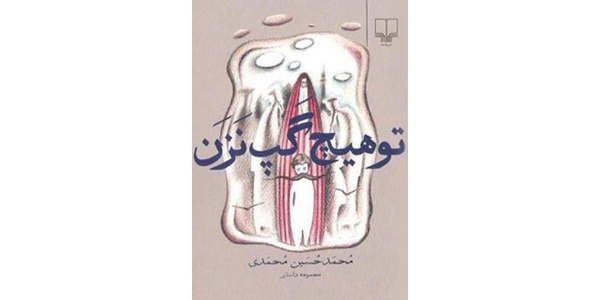
Just Say Nothing (2009) is a collection of nine short stories written by Mohammad-Hussein Mohammadi. Red Figs of Mazar (2004) and Encyclopedia of Afghanistan Story Writing (2006) are among other works published by this young prolific Afghan writer. Set in Afghanistan under Soviet’s or Taliban’s occupation, almost all his short stories are either preoccupied with or overshadowed by the concept of war.
The collection is accompanied by a glossary of Dari Persian to Farsi (Iranian Persian) at the end of the book. The most astonishing thing about the stories is the unique points of view contributed to the narration of the characters and events. Stories are narrated from a different and even opposing vantage points as those of a Talib soldier, his victim, or a disinterested passerby. The Narration, whether carried on the shoulder of a whining young child or a deserted anxious housewife, enjoys different levels of interpretation. For instance, the metaphoric language finds a profound voice in “The Drunk Partridge” where the exhausted aged bird, recently a looser, fed up with everyday fight is strolling on white and black graves as a rehearsal for the match. The images are made beautifully through repetitious words of hope and despair uttered by the partridge owner.
“Just Say Nothing” which lends its title to the whole collection is a one-day account of a woman on how she has taken the risk of getting out of the house during Taliban reign to come and ask her father a favor to save her own family. She keeps talking throughout the story. Still, she is not simply involved in a monologue. There are references to other characters which are only understood through her nonstop stream of spoken consciousness. she continuously speaks her mind despite all the advice urging her to keep silent. Despite the fact that any clue to the sex or gender of the narrator is absent up to a certain point in the story, it could be felt that you are hearing a feminine voice from the very beginning.
“There Were Eight of Us Who Had No Legs” experiences a different narratological voice by reciting the story from the point of the collective “we” as the vantage view. The scene is set with certain skills and uniqueness; eight paralyzed Talib soldiers are appointed to guard a castle surrounded by a graveyard from a ben. And all through the story it is the eight of them telling the story as one single voice. Defamiliarized by the concept of “we”, we as the audience are considered as a part of the narration by admitting and, at the same time, trying to ignore the emotional distance between the “we” as we are and the “us” in “Eight of Us Who Had No Legs.” The story not only enjoys a challenging narratological voice, but also is an original and breathtaking one.
Far from war’s fanfare, “Rana” is a little boy’s accounts of his young aunt, Rana. Whereas the story can be taken for children literature, which is the author’s start point in literary carrier and in fact his area of expertise, the words unravel a chain of psychological ties which could also be discussed in Freudian psychoanalysis. Encoding and decoding of the psychological ties have been skillfully and believably manipulated through the naïve narration of Hussein, the whining little boy. However, you can read and enjoy the story without bothering to know what an Oedipal Complex is.
Altogether, as a Persian reader who has never tried a modern Dari Persian literature, Just Say Nothing could make a very good beginning. Although there is a glossary for help at the end of the book, you will find yourself sunk in reading pages and pages without checking it because you will be enjoying and experiencing a different but familiar piece of literature written with a skillful language.


Leave a Reply